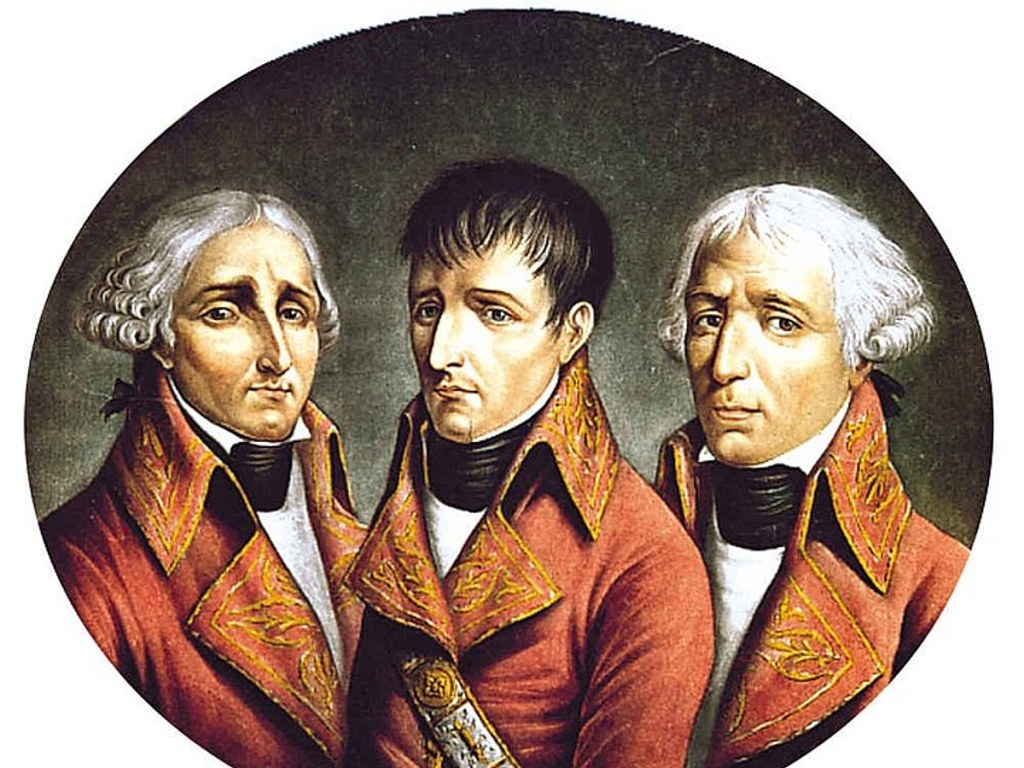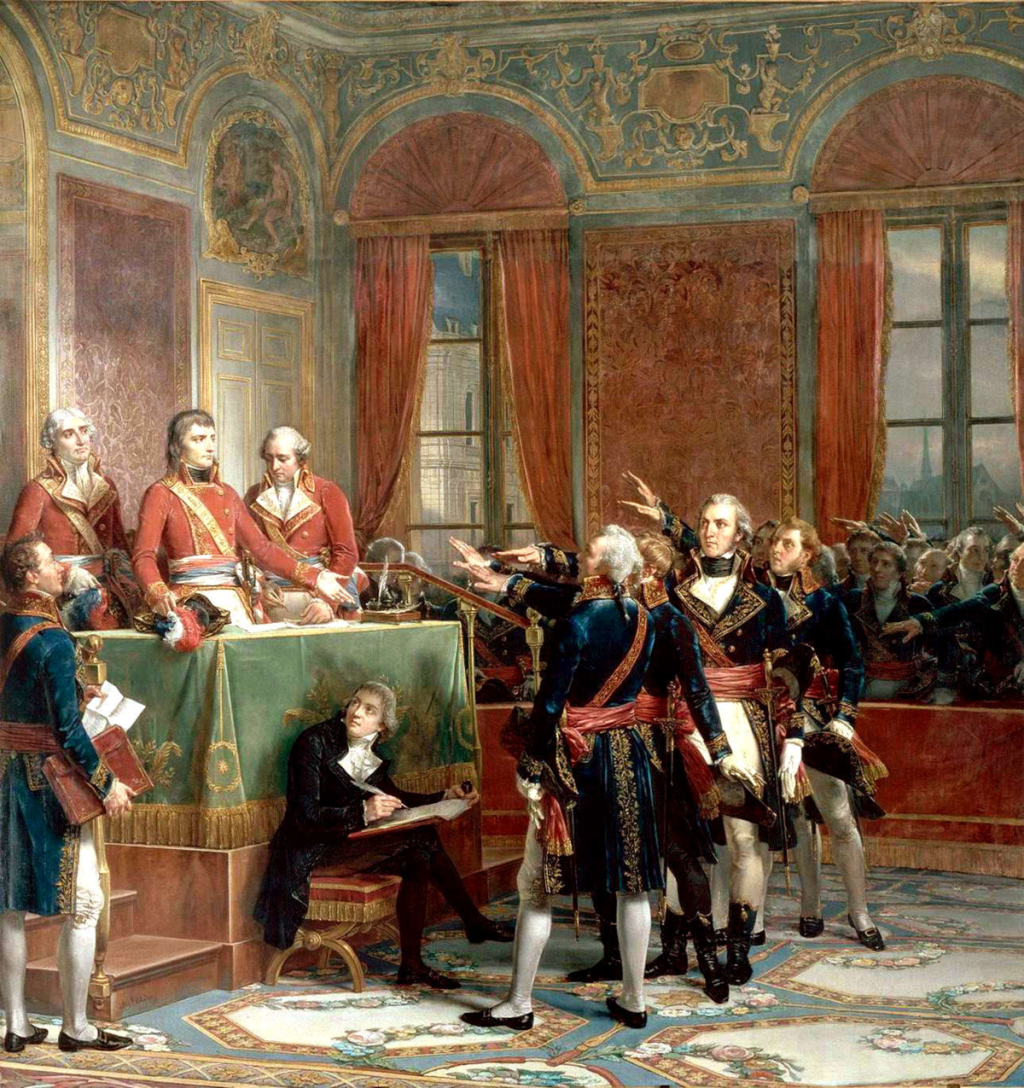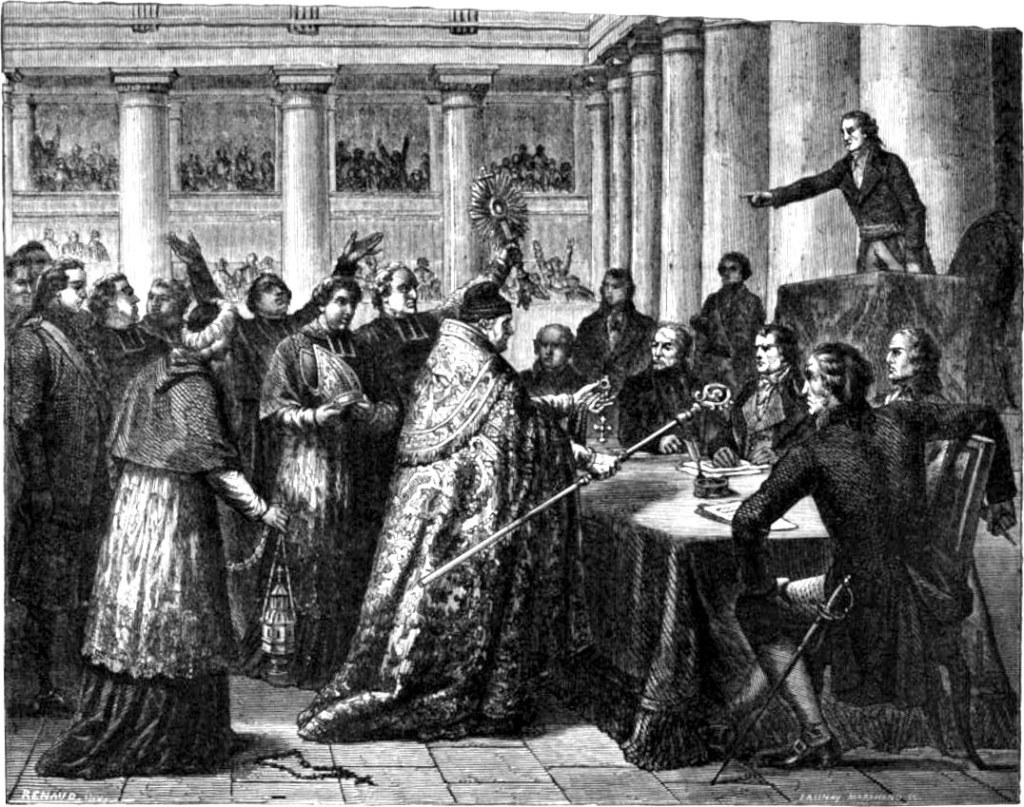The French Government Before Napoleon
Introduction
Dear readers,
Welcome to this informative article where we will delve into the fascinating history of the French government before Napoleon. In order to understand the rise and impact of Napoleon Bonaparte, it is crucial to explore the political landscape that preceded his reign. By examining the state of governance in France prior to Napoleon, we can gain valuable insights into the events and circumstances that paved the way for his ascent to power.

Image Source: worldhistory.org
In this article, we will explore the key aspects of the French government before Napoleon, including its structure, leaders, timeline, geographical context, reasons for its existence, and the mechanisms through which it operated. By the end, you will have a comprehensive understanding of the political landscape that set the stage for one of history’s most influential figures.
So without further ado, let us embark on this journey through time and explore the French government before Napoleon!
What Was the French Government Before Napoleon?
📜 The French government before Napoleon refers to the political system and institutions that governed France prior to the rise of Napoleon Bonaparte. It encompassed various forms of government, including absolute monarchy, constitutional monarchy, and the revolutionary government.

Image Source: wikimedia.org
🏛️ Before Napoleon, France experienced a tumultuous period characterized by social unrest, political upheaval, and frequent changes in leadership. The French Revolution, which began in 1789, played a significant role in shaping the government that preceded Napoleon’s rise to power.
🤔 To understand the French government before Napoleon, it is important to examine its key components, leaders, timeline, geographical scope, reasons for its existence, and the mechanisms through which it functioned.

Image Source: wondriumdaily.com
Let us now explore each of these aspects in detail.
The Structure of the French Government Before Napoleon
The French government before Napoleon underwent significant transformations over the years. It evolved from an absolute monarchy under Louis XVI to a constitutional monarchy during the French Revolution.
👑 Under the absolute monarchy, the French government was characterized by centralized power vested in the monarch. The king had absolute authority over the legislative, executive, and judicial branches of government.
🔒 However, the French Revolution led to the overthrow of the monarchy and the establishment of a constitutional monarchy. The National Assembly, later known as the Legislative Assembly, was created to represent the interests of the people and limit the powers of the king.
⚖️ The constitutional monarchy introduced a separation of powers, with the king as the head of state, the Legislative Assembly as the legislative body, and the judiciary as an independent branch. This marked a significant shift towards a more representative and accountable form of government.
🗽 The French government before Napoleon also witnessed the emergence of revolutionary governments, such as the Committee of Public Safety during the Reign of Terror. These governments were characterized by a high degree of centralization and exercised significant control over the country.
🏛️ Overall, the structure of the French government before Napoleon was marked by a transition from absolute monarchy to constitutional monarchy, with intermittent periods of revolutionary governments.
The Leaders of the French Government Before Napoleon
👑 Throughout its history, the French government before Napoleon was led by a diverse range of leaders. These leaders played pivotal roles in shaping the political landscape and influencing the direction of governance.
💼 Some notable leaders during this period include Louis XVI, the last absolute monarch of France, whose reign was marked by economic challenges and political unrest. His inability to address the grievances of the people eventually led to the French Revolution.
🔥 During the French Revolution, prominent figures such as Maximilien Robespierre, Georges Danton, and Jean-Paul Marat emerged as influential leaders. They championed revolutionary ideals and played key roles in the establishment of new political institutions.
🦅 Following the fall of the monarchy, France saw the rise of the Directory, a five-member executive committee. However, the Directory faced numerous challenges and was eventually overthrown by Napoleon Bonaparte in a coup d’état.
🎩 Napoleon Bonaparte, who later became Emperor Napoleon I, was undoubtedly the most significant leader of the French government before Napoleon. His rise to power marked the end of the revolutionary period and the establishment of a new form of government known as the Napoleonic Empire.
🌟 Napoleon’s leadership style and military prowess had a profound impact on France and Europe as a whole. His rule brought stability and reforms to France, but also led to wars and conflicts that shaped the course of history.
👥 These leaders, each in their own way, left indelible marks on the French government before Napoleon and set the stage for the transformative era that was to come.
The Timeline of the French Government Before Napoleon
📅 The timeline of the French government before Napoleon encompasses several significant events and periods that shaped the political landscape of France.
⚜️ The period preceding the French Revolution, which began in 1789, was characterized by the reign of Louis XVI and growing discontent among the people. Economic hardship, social inequality, and political corruption created a fertile ground for revolutionary ideas.
🔔 The French Revolution itself lasted from 1789 to 1799 and witnessed the establishment of various revolutionary governments. The National Assembly, the Legislative Assembly, and the National Convention were among the key institutions during this period.
⚖️ The fall of the monarchy in 1792 led to the establishment of the First French Republic, which lasted until 1804. The First Republic saw the Reign of Terror and the rise of revolutionary leaders such as Robespierre.
📜 In 1799, Napoleon Bonaparte staged a coup d’état and became the First Consul of France, effectively ending the revolutionary period. He later declared himself Emperor in 1804, establishing the Napoleonic Empire.
🏰 The Napoleonic Empire, with Napoleon as its ruler, lasted until 1814. During this time, Napoleon implemented numerous reforms, expanded French territory, and waged wars across Europe.
⚔️ Napoleon’s reign came to an end in 1814 when he was defeated and exiled. However, he briefly returned to power in 1815 during the Hundred Days before his final defeat at the Battle of Waterloo.
🕊️ The fall of Napoleon marked the beginning of a new era in French politics, as the country transitioned to a constitutional monarchy and eventually to a republic.
🗓️ This timeline provides a glimpse into the complex and transformative events that shaped the French government before Napoleon.
The Geographical Context of the French Government Before Napoleon
🗺️ The geographical context in which the French government before Napoleon operated played a significant role in shaping its dynamics and challenges.
🌍 France, with its diverse landscapes and regions, presented unique governance challenges. The country faced geographical disparities in terms of resources, economic activities, and cultural identities.
🏔️ The presence of the Alps and Pyrenees mountain ranges created natural barriers, influencing communication and transportation networks. This posed challenges for centralized governance and the effective implementation of policies.
🌊 France’s extensive coastline and access to major waterways, such as the Seine and Rhône rivers, facilitated trade, but also exposed the country to external threats and influences.
🌳 Furthermore, France’s agricultural regions, such as the fertile plains of the Loire Valley and the vineyards of Bordeaux, played a crucial role in shaping the country’s economy and political dynamics.
🏙️ The city of Paris, with its central location and historical significance, emerged as a political and cultural hub. It became the seat of power and witnessed the rise and fall of different governments throughout history.
🗺️ The geographical context of France, with its diverse landscapes, natural barriers, and strategic locations, influenced the functioning of the French government before Napoleon and shaped its policies and priorities.
The Reasons for the Existence of the French Government Before Napoleon
❓ The French government before Napoleon existed due to a combination of historical, political, and societal factors.
🔍 Historically, the absolute monarchy in France had been the prevailing form of government for centuries. The concentration of power in the hands of the monarch and the aristocracy created deep-rooted inequalities and grievances among the people.
🔥 The Enlightenment, a philosophical and intellectual movement that emphasized reason, individual rights, and representative government, played a significant role in challenging the existing power structures and advocating for political reforms.
💡 Additionally, economic challenges, such as widespread poverty and food shortages, fueled social unrest and dissatisfaction with the monarchy. The French Revolution, which aimed to address these issues and establish a more equitable society, led to the creation of new political institutions.
👥 The French government before Napoleon also emerged as a result of the aspirations and demands of the French people. The desire for greater political participation, equality, and social justice drove the establishment of new forms of government.
📜 The French Revolution and its aftermath highlighted the need for a system that could respond to the changing aspirations of the French society and address the challenges facing the nation.
❓ Understanding the reasons for the existence of the French government before Napoleon allows us to comprehend the motivations behind the political transformations that took place during this period.
The Mechanisms of the French Government Before Napoleon
🔧 The French government before Napoleon operated through a set of mechanisms and institutions that facilitated its functioning and decision-making processes.
🏛️ The legislative branch played a crucial role in shaping policies and laws. The National Assembly, the Legislative Assembly, and later the National Convention were responsible for enacting legislation and representing the interests of the people.
⚖️ The judiciary, as an independent branch of government, ensured the application of laws and the administration of justice. It provided a system of checks and balances to prevent abuses of power.
💼 The executive branch, under the constitutional monarchy and the revolutionary governments, encompassed various bodies and committees responsible for executing policies and maintaining law and order.
👥 The French government before Napoleon also relied on administrative bodies and local governments to implement policies and ensure governance at the regional and local levels.
📝 Additionally, the French government utilized a system of taxation, bureaucracies, and military institutions to maintain control and exert authority over the country.
🤝 The mechanisms employed by the French government before Napoleon aimed to balance power, ensure accountability, and facilitate the smooth functioning of governance in a rapidly changing political landscape.
The Advantages and Disadvantages of the French Government Before Napoleon
⭐ The French government before Napoleon, like any political system, had its advantages and disadvantages. Let us explore both sides of the coin.
Advantages of the French Government Before Napoleon
✅ 1. Representation: The French government before Napoleon, particularly during the revolutionary period, introduced the concept of representation and popular sovereignty. It allowed for broader participation in decision-making and gave voice to previously marginalized segments of society.
✅ 2. Reform and Modernization: The French Revolution and its aftermath brought about significant reforms and modernization in various aspects of French society. These reforms included the abolition of feudalism, the introduction of the metric system, and the establishment of secular institutions.
✅ 3. National Unity: The French government before Napoleon played a pivotal role in fostering a sense of national unity and identity. The revolutionary ideals of liberty, equality, and fraternity resonated with the French people and created a shared sense of purpose.
✅ 4. Centralization of Power: The centralized nature of the French government before Napoleon allowed for swift decision-making and the implementation of policies. It facilitated the execution of reforms and the consolidation of state authority.
✅ 5. Expansion and Influence: Under Napoleon’s rule, France experienced significant territorial expansion and exerted its influence across Europe. This expansion brought economic prosperity and enhanced France’s standing on the world stage.
Disadvantages of the French Government Before Napoleon
❌ 1. Instability: The French government before Napoleon witnessed frequent changes in leadership and political instability. The transition from an absolute monarchy to a constitutional monarchy and later to revolutionary governments created a volatile environment.
❌ 2. Authoritarian Tendencies: During the revolutionary period, the French government exhibited authoritarian tendencies, particularly during the Reign of Terror. The suppression of dissent and the disregard for individual rights raised concerns about the erosion of freedom.
❌ 3. Wars and Conflicts: The French government before Napoleon engaged in numerous wars and conflicts, both within France and across Europe. These conflicts resulted in immense human suffering and economic hardships for the French people.
❌ 4. Social Divisions: Despite the ideals of equality espoused during the revolutionary period, social divisions and inequalities persisted in French society. The government’s ability to address these disparities remained limited.
❌ 5. Consolidation of Power: With the rise of Napoleon, the French government witnessed a consolidation of power in the hands of a single individual. This concentration of authority raised concerns about the potential for abuse and the erosion of democratic principles.
FAQ (Frequently Asked Questions)
1. Was the French government before Napoleon a democracy?
🔎 No, the French government before Napoleon cannot be considered a democracy in the modern sense. While it introduced elements of representation and popular sovereignty, power remained concentrated in the hands of a few and the